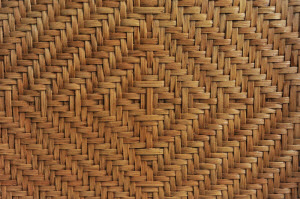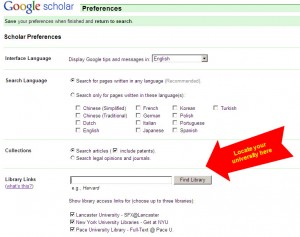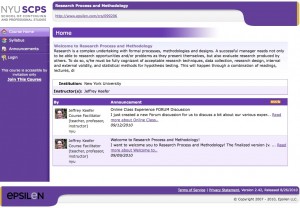 My life revolves around my doctoral studies at this point (at least outside of my full-time job, of course!), as I am busily working on my doctoral thesis proposal that is due at the end of the month. While I have heard it said, and even experienced it at times, that there are few things as lonely and isolating as doing a PhD, I think that having a community of practice (here’s to you, Etienne!) for support and with which to share and grow and weave thoughts, is worth its weight in qualitative methods texts.
My life revolves around my doctoral studies at this point (at least outside of my full-time job, of course!), as I am busily working on my doctoral thesis proposal that is due at the end of the month. While I have heard it said, and even experienced it at times, that there are few things as lonely and isolating as doing a PhD, I think that having a community of practice (here’s to you, Etienne!) for support and with which to share and grow and weave thoughts, is worth its weight in qualitative methods texts.
With this said, I find that the #PhDchat that exists on Twitter is fantastic in its communal support of struggling doctoral students, sharing of resources, answering of questions, and suggesting of apps and software. With this said, just knowing that there are others out there who are reading along while facing their own struggles and liminal experiences is beneficial–I am not working alone in a vacuum but weaving my experiences with others along shared, but different, paths.
Some of my colleagues in this synchronous chat that exists in an ongoing asynchronous manner as well have started to discuss ways of studying, or at least beginning to explore this experience. Martin Eve @martin_eve discussed the early history of the #phdchat experience in his fine post On #PhDchat: Call for Collaboration/History, Overview, Themes and Response, and Andy Coverdale @AndyCoverdale talked about considerations related to ways of understanding Twitter networks, among other things, in On #phdchat – some initial thoughts. I have previously spoken about this experience in my earlier post PhD Chat as #phdchat and Liz Thackray @lizith with her Networking post soon thereafter. While this post here is partly in response to calls for people to discuss their experiences here (such as from part of an exchange I had with Jennifer Jones @jennifermjones) among others, I am going to take a slightly different perspective on this experience.
For those who know me, it may not come as a surprise that I am not terribly interested in understanding how the #phdchat network works, who responds to whom, who retweets what and when they do it. Yes, they are all valuable questions and may very well lead to some interesting research (anybody thinking about Internet Research 12 or 2012’s Networked Learning Conference that was just announced in this regard, please let me know!), though the questions I tend to ask are more around the area of meaning and how this experience helps to form identity:
- How does your experience of participating in #phdchat help or hinder your doctoral studies?
- What is your experience of community in #phdchat?
- What have you learned through active or passive involvement in #phdchat?
Ahh, so many interesting ideas come about when we involve ourselves in something really engaging. I wonder how my (current or future) colleagues involved in this see themselves as part of something larger than themselves? How do you weave your PhD?


